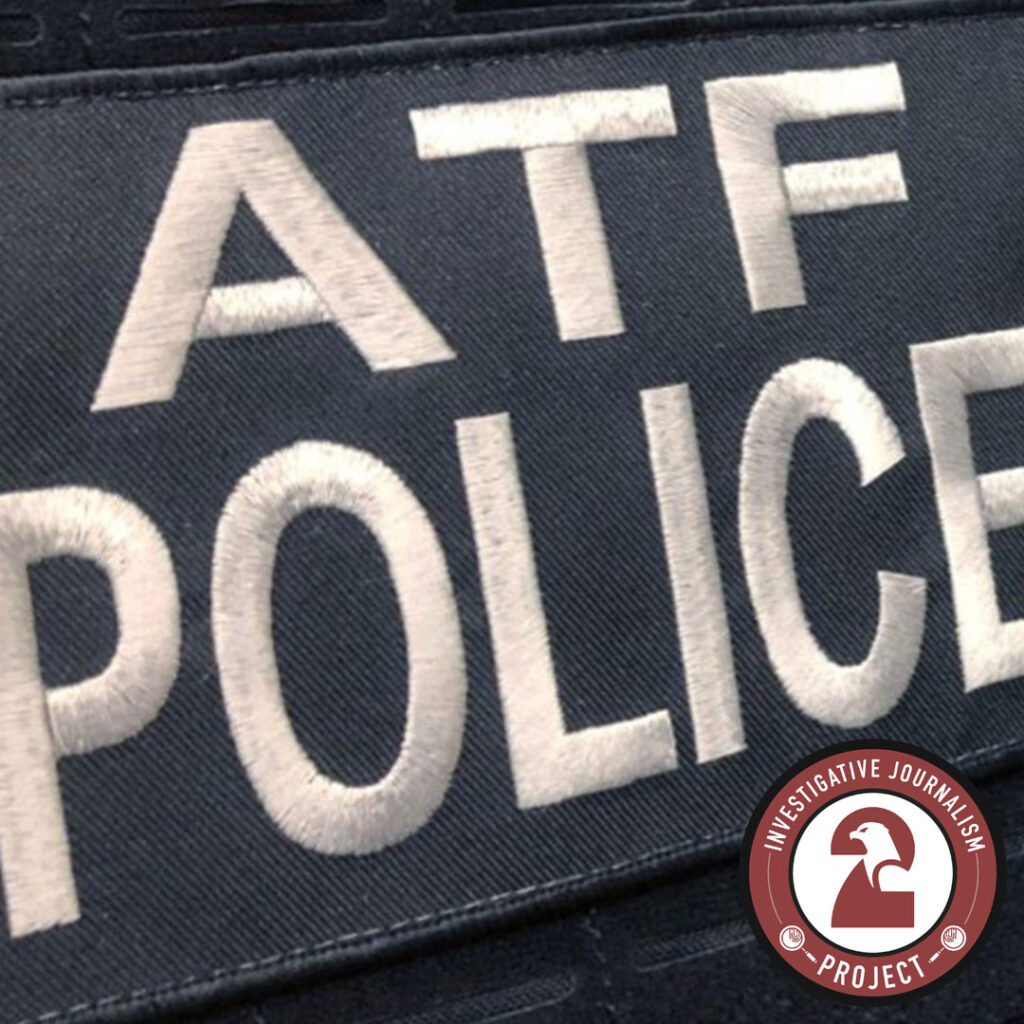by Lee Williams
Bryan Malinowski, the 53-year-old executive director of the Clinton National Airport in Little Rock, Arkansas, died two days after exchanging gunfire with ATF agents who raided his home at 6 a.m. Tuesday morning. His death raises questions about whether he knew he was trading gunfire with federal agents, or if he thought their no-knock raid was a home invasion.
Malinowski’s family cannot understand what led to the gunfight and believes other less-lethal tactics should have been incorporated into ATF’s arrest strategy.
“The ATF burst into his house, and they did it in a manner that was the most dangerous combination possible.” Bryan’s brother Matthew Malinowski told local media Wednesday. “The easiest way to have taken care of this situation – the most common way – would be to wait until he gets in his car, pull over and arrest him. Or you wait until he comes to work, and you arrest him there.”
One ATF agent received non-life-threatening wounds during the gunfight and is expected to fully recover.
After the ATF SWAT team breached the front door, an agent whose name has not been publicly released shot Bryan Malinowski in the head with what his brother described as a “high-caliber rifle.”
Private sales to prohibited person?
As of Thursday, federal officials said ATF’s search warrant affidavit, which would reveal why Malinowski was targeted by ATF, was not yet available to the public.
However, according to a statement by Malinowski’s family who had seen the affidavit, he was “accused of making private firearm sales to a person who may not have been legally entitled to purchase the guns.”
“Our family has endured an unspeakable tragedy and one that is almost impossible to understand. We are mourning the loss of Bryan, who passed away earlier today. Our thoughts and prayers also go out to the government agent who was injured yesterday, and to his family. We do not understand the government’s decisions which led to a dawn raid on a private home and triggered the use of deadly force. We are obviously concerned about the allegations in the affidavit released by the government today. Even if the allegations in the affidavit are true, they don’t begin to justify what happened. At worst, Bryan Malinowski, a gun owner and gun enthusiast, stood accused of making private firearm sales to a person who may not have been legally entitled to purchase the guns. For now, we will wait for all the facts to come out. In the meantime, we ask that the public and the media respect our privacy,” the statement reads.
Malinowski’s family hopes something good can come from their loss.
“We’re looking for organ donations, if possible. The funny thing is you can’t even do that because his body hasn’t been released by the ATF. So even if he was able to donate organs – and he’s got very many healthy organs – we can’t even do that because the ATF is not responding. So, not only is the ATF hurting him, they’re hurting other people, too,” Matthew Malinowski told local media Wednesday.
Bryan Malinowski collected firearms and rare coins, his brother said. He was a prominent and respected member of the community, lived in an affluent West Little Rock neighborhood and earned more than $250,000 per year at the airport.
“Something stinks to hell,” Matthew Malinowski told a local NBC affiliate Wednesday.
The fatal shooting will be investigated by the Arkansas State Police Criminal Investigation Division. The CID commander, Major Stacie Rhoads, did not return calls seeking her comment Thursday. Once CID’s investigation is complete, state prosecutors, not federal, will determine whether any ATF agent should face criminal charges.
According to his airport bio, Bryan Malinowski had more than 30 years of airport leadership experience. He first joined Clinton National in 2008 as director of properties, planning and development, and was promoted to deputy director a year later. He became executive director in 2019. Malinowski was a pilot and certified flight instructor.
Bill Walker, chair of the Little Rock Municipal Airport Commission, announced Malinowski’s death Thursday on the airport’s website:
“With a heavy heart, we announce the passing of our executive director Bryan Malinowski. Bryan was a 16-year employee of the airport. Under his leadership, our airport has experienced significant growth and success, expanding services and offerings to our community and state. We extend our heartfelt condolences to Bryan’s wife, Maer, loved ones and friends.”
A history of violence
This is not the first time ATF has been accused of using excessive force. There were scores of lives lost at Waco, and a Deputy U.S. Marshal and Randy Weaver’s wife and son were killed during ATF’s Ruby Ridge siege. The agency’s infamous Operation Fast & Furious resulted in the deaths of Border Patrol Agent Brian Terry and hundreds of Mexican nationals.
After Waco and Ruby Ridge, like in Malinowski’s case, ATF officials were criticized for not using other less-lethal arrest tactics.
In a similar raid last year, more than a dozen ATF agents wearing tactical gear and armed with AR-15s stormed the rural Oklahoma home of Russell Fincher, a high school history teacher, a Baptist pastor and a parttime gun dealer. Fincher now believes their goal was to scare him into relinquishing his Federal Firearm License.
“It was like the Trump raid. They called me out onto my deck and handcuffed me. My son was there and saw the whole thing. He’s 13 years old,” Fincher told the Second Amendment Foundation last year. “They held me on the porch for about an hour. I was surrounded by agents. One by one, they yelled at me about what I was doing. In my mind, I decided if they were going to beat me up over every little thing, I’m done. As soon as I said, ‘If you want my FFL, you can have it,’ one of the agents pulled out a piece of paper and said, ‘Well then sign here.’ He had made three copies in case I screwed one up. It was exactly what they wanted. I was shocked.”
The raid prompted Fincher’s state representative, Justin “JJ” Humphrey, to call for a state grand jury to investigate ATF’s conduct.
Humphrey, who has served as a law enforcement officer for more than 30 years, prepared a probable cause affidavit that he presented to the Oklahoma Attorney General and Fincher’s local sheriff, which outlines the crimes and civil rights violations he believes ATF agents committed when they sent the 12-man SWAT team to Fincher’s home.
“I struggle with seeking charges against fellow police officers,” Humphrey wrote in the affidavit. “However, it appears ATF is abusing their police powers and violating their oaths of office. I believe the ATF has committed crimes and violated Fincher’s civil rights and due process of law.”
Officials at ATF’s Little Rock Field Office did not return calls seeking their comments for this story.


